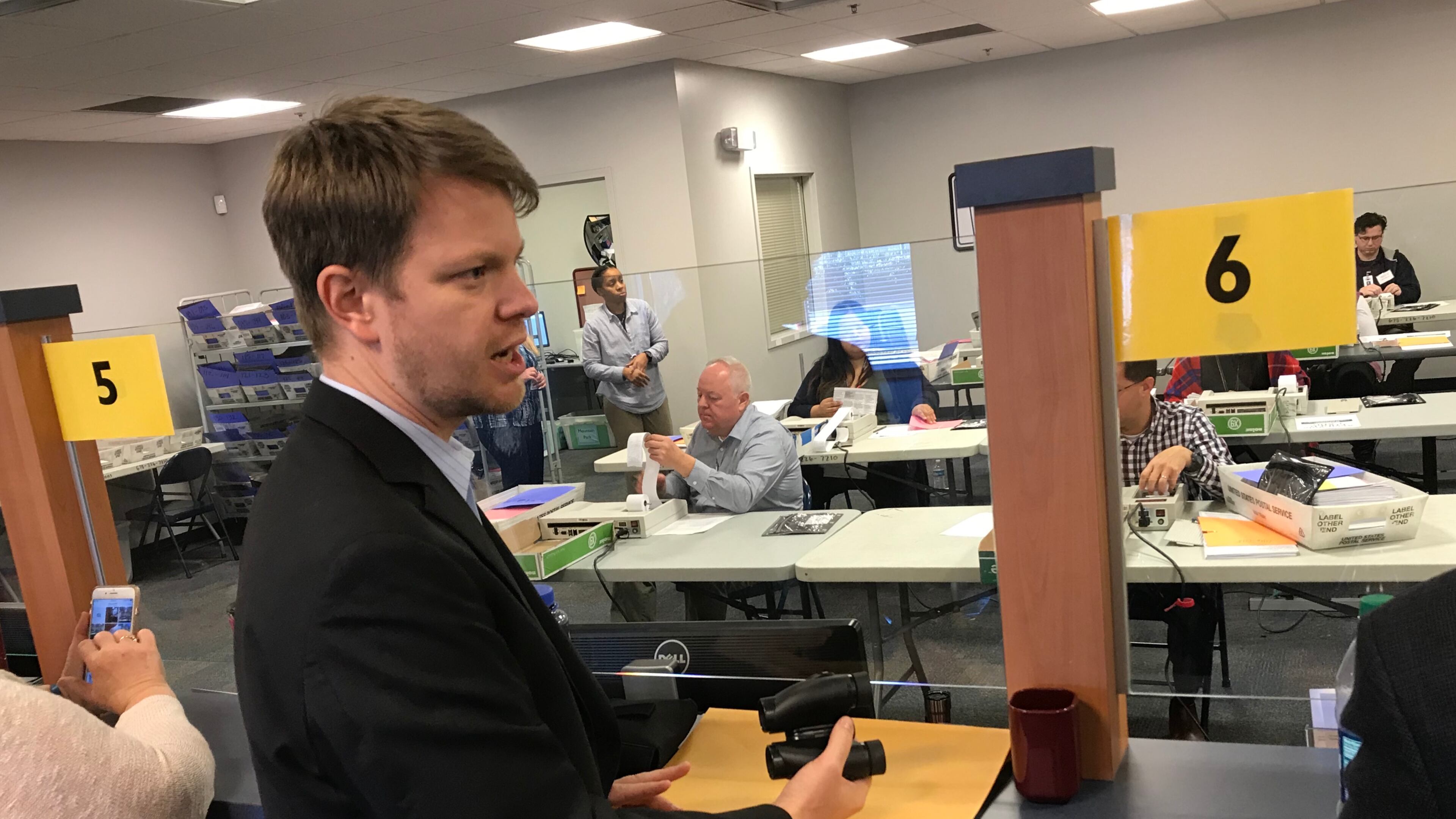7th District: Bourdeaux concedes following recounts

UPDATE, 5:00 P.M.: Democrat Carolyn Bourdeaux has formally conceded.
“This campaign was about more than me; it was about building community and working for change," she said in a news release. "We moved the needle in this district more than anyone thought possible."
UPDATE, 3:50 P.M.: Rob Woodall picked up nine votes in the Gwinnett County recount. Carolyn Bourdeaux picked up one additional vote.
That would place Woodall’s new -- and perhaps final -- lead at 433 votes.
UPDATE, 2:45 P.M.: The Forsyth County portion of the 7th Congressional District recount is complete -- and Republican incumbent Rob Woodall appeared to widen his margin by six votes.
Information released by Forsyth showed Woodall had gained four new votes while Democratic challenger Carolyn Bourdeaux lost two.
That would put Woodall’s lead at 425 votes.
Gwinnett County, which makes up the lion’s share of the 7th District, was nearing completion of its own recount.
ORIGINAL: The camp of Democrat Carolyn Bourdeaux is questioning the transparency of Wednesday's scheduled recount in the tightly contested race to represent Georgia's 7th Congressional District.
Bourdeaux, who is trailing Republican incumbent Rob Woodall by just over 400 votes for the seat that's split between Gwinnett and Forsyth counties, officially requested the recount Tuesday afternoon. It began at 10 a.m. and, as of 1:45 p.m., had not been completed in either Forsyth or Gwinnett.
An order from Secretary of State Robyn Crittenden directed elections officials to “manually review by hand, in plain view of the public and designated officials for both candidates, any optical scan ballots” that have extra votes, stray marks or are folded or bent in such a way that they can’t be scanned.
Most ballots are cast electronically and will be recounted the same way. But the roughly 20,000 paper absentee and provisional ballots received by Gwinnett County — about 70 percent of which could be from the 7th District — are scanned individually.
An email exchange between Bourdeaux campaign manager Spencer Smith and Bryan Tyson, an attorney for Gwinnett County, suggests Gwinnett plans to manually review paper ballots only if they can’t be successfully scanned first.
The Bourdeaux camp, which provided the email chain with Tyson to The Atlanta Journal-Constitution, doesn’t think that’s good enough. It believes Crittenden’s directive instructed elections officials to manually review all paper ballots, period.
“There’s nothing in the order from the [Secretary of State] that says that they have to be rejected by the machine first,” Smith wrote in a Tuesday night email.
In response, Tyson said that scanning machines would reject ballots with the issues listed in the Secretary of State’s order.
“The ballots that are rejected by the optical scan machines for those reasons or otherwise cannot be read by those machines will be hand-reviewed in accordance with the Secretary of State’s directive regarding the recount,” Tyson wrote, according to the email chain.
The Bourdeaux team also raised questions about being relegated Wednesday to an observation area separated by a glass partition from those actually counting ballots— “where we could not read the ballots even if we had binoculars,” as Smith put it in an email.
Smith actually brought binoculars Wednesday.
Tyson responded that any ballots reviewed by hand will by evaluated by at least one Democrat, one Republican and one independent member of the five-person Gwinnett elections board.
“Your objection about the observation area is noted,” Tyson wrote. “Gwinnett will ensure that the Democratic members of the Board of Elections are personally reviewing all of the ballots that are required to be reviewed by hand.”
Gwinnett officials did not immediately respond to a request for further comment. In a conversation with Smith outside the elections board meeting room Wednesday morning, Van Stephens, another county attorney, confirmed Gwinnett’s stance regarding observation.
A pair of observers from the U.S. House of Representatives were later allowed behind the glass, Gwinnett elections board chairman Stephen Day said.
The county has been under fire throughout the current election season.
A number of court orders and guidance from the Secretary of State’s office ultimately led the county to accept hundreds of ballots that might not have otherwise been counted.
One restraining order from U.S. District Court Judge Leigh Martin May directed Gwinnett to reassess and count absentee ballots and applications that were rejected solely due to signature mismatches. Another stopped Gwinnett from rejecting absentee ballots due to birthdate issues — most commonly the result of voters leaving that space blank or erroneously listing the current year.
A third court order instructed Gwinnett and other counties to allow voters whose registrations were erroneously flagged due to citizenship questions to cast ballots.
The county certified its election results on Thursday, two days later than originally planned.
Wednesday's recount is also scheduled to include ballots in Gwinnett County Board of Education District 2, where Republican Steven Knudsen leads Democrat Wandy Taylor by 118 votes.




